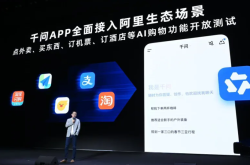Xiaomi Awaits AI Ascension Amid Trillion-Dollar Market Valuation
![]() 02/06 2025
02/06 2025
![]() 622
622
As the Spring Festival fireworks faded, Xiaomi Group's share price soared to a new peak, surpassing a market value of one trillion Hong Kong dollars.
Over the holiday, I indulged in hearty drinks with my cousin in Tangshan, so much so that we both passed out. Yet, amidst the haze, one detail lingered: my cousin, who's tying the knot this year, opted for an array of Xiaomi appliances, including the latest dual-partition washing machine that's all the rage.
Our conversation also touched upon the SU7, which my cousin adores. Given his job that frequently takes him to accident scenes, he finds the SU7's quality, materials, and safety unparalleled.
This underscores an intriguing trend: when shopping for cars and home appliances, especially among the youth, imported brands like BBA, Siemens, or SONY are losing their allure. Domestic brands are now seen as comparable, if not superior, in terms of specifications, performance, and pricing.
This shift is particularly evident in the automotive sector. Purchasing a joint-venture or entry-level BBA car no longer offers the value for money that domestic brands do. My uncle, for instance, swapped his Volkswagen for a BYD Qin.
This transition from imported and joint-venture products to domestic brands isn't a downgrade but a shift in collective mindset.
I'm fond of the term "collective mindset," coined by Liang Wenfeng, founder of DeepSeek, in an interview: "My father is an elementary school teacher. In the 1990s, when money-making opportunities abounded in Guangdong, many parents visiting our home dismissed education as futile. Now, perceptions have flipped; money isn't as easy to make, and even taxi driving opportunities are scarce."
"When society rewards those who innovate and excel, the collective mindset shifts. It's a matter of facts and time."
Lei Jun and Xiaomi are pivotal drivers of this mindset change and its prime beneficiaries.
In 2024, Xiaomi shipped 160 million smartphones and delivered 130,000 SU7s. By the third quarter, the monthly active users of the Mijia APP reached 100 million, with 860 million devices connected to the AIot platform (excluding smartphones and laptops).
These figures are mirrored in Xiaomi's current market valuation. While the YU7 in 2025 might not replicate the SU7's explosive success, where lies Xiaomi's next trillion-dollar path?
In my previous article, "Xiaomi's Third-Quarter Report: Lei Jun's Factory in Full Swing," I noted that "Lei Jun is gradually fulfilling the dreams Jia Yueting once boasted about."
Lei Jun is the embodiment of Old Jia's dreams, which serve as Xiaomi's blueprint.
In 2015, Jia Yueting introduced the concept of "ecological reaction," which sounded like a far-fetched dream then and now appears overly ambitious. Even Jia himself struggled to articulate it clearly, once explaining, "The next-gen UI connects apps seamlessly, integrating with UI systems to make the UI the interaction hub between the ecosystem and terminals, transcending hardware and platform limitations, restoring simplicity to users."
'Ecological reaction' remained a theoretical construct. But Lei Jun took it seriously.
By 2023, Xiaomi unveiled the "full ecosystem of people, cars, and homes," achieving a closed loop across multiple terminals and scenarios. Lei Jun is realizing what Jia Yueting couldn't—true ecological reaction.
Jia envisioned "reaction" as a chemical process where platforms, content, terminals, applications, and scenarios interact to enhance user experience. LeTV's downfall stemmed from creating ecosystems without coupled value.
In contrast, Xiaomi's ecosystem lays the groundwork for "reaction," connecting millions of households through mobile phones, cars, smart home devices, and more, creating a vast scenario advantage. Devices interact seamlessly, with Super Xiao'ai bridging the gap with users.
The ecological infrastructure is in place; all that's needed is the right wind.
Currently, that wind is AI. Xiaomi isn't late to the AI race, having established an AI lab in 2016. By August 2023, Xiaomi had over 3,000 AI R&D personnel, with its self-developed large model registered in May 2024. Xiaomi also boasts a GPU cluster with tens of thousands of cards, supporting AI large model training.
Its terminal diversity—spanning smartphones, smart homes, IoT, and automobiles—gives Xiaomi a significant edge. However, technically, it still lags behind giants like Google and Amazon. DeepSeek's popularity during the Spring Festival left Xiaomi, among others, feeling the heat.
But Lei Jun is speeding up the catch-up.
Media reports suggest Lei Jun spent tens of millions before the new year to recruit Luo Fuli, the AI prodigy from DeepSeek, to lead Xiaomi's large model team. In his 2023 annual speech, Lei Jun announced Xiaomi's full embrace of AI large models, focusing on lightweight and local deployment.
The pieces are falling into place. Optimistically, with the automotive business's success and AIot ecosystem's expansion, Xiaomi could be rebranded from a "hardware company" to an "ecological platform," potentially boosting its valuation.
Meanwhile, across the ocean, Jia Yueting might be lamenting the timing of his dreams.







